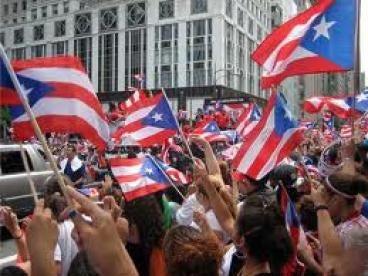The U.S. Internal Revenue Service (IRS) recently issued Revenue Ruling 2014-24, which expressly permits retirement plans that are tax qualified only in Puerto Rico (Puerto Rico-only plans) to continue to pool assets with U.S.-qualified plans in Revenue Ruling 81-100 group trusts (group trusts) now and in the future. The ruling is welcome relief for Puerto Rico plan sponsors, institutional investors and trustees, who previously were relying on transition relief that permitted Puerto Rico-only plans to participate in U.S. group trusts for only a limited time without facing potential disqualification of the participating U.S. plans and trusts.
Revenue Ruling 2014-24 also extends the deadline for sponsors of certain retirement plans qualified in both the United States and Puerto Rico (dual-qualified plans) that participated in a group trust to make a tax-free transfer of benefits for Puerto Rico employees to a Puerto Rico-only qualified plan prior to January 1, 2016. Eligibility is limited only to dual-qualified plans that participated in a group trust as of January 20, 2011.
Background
U.S.-qualified retirement plans are permitted to pool their assets for investment purposes in a U.S. group trust only if certain requirements are satisfied. A few years ago, the IRS issued Revenue Ruling 2011-1, which revised and restated the generally applicable rules for group trusts described in Revenue Ruling 81-100. In particular, Revenue Ruling 2011-1 provided that only certain entities defined as “group trust retiree benefits plans” are eligible to participate in U.S. group trusts.
Prior to Revenue Ruling 2011-1, comments made by certain IRS officials created uncertainty regarding the ability of Puerto Rico-only plans to participate in U.S. group trusts. As described in our On the Subject regarding Revenue Ruling 2011-1, these earlier comments made it appear that the IRS was going to change its position (previously stated in numerous favorable private letter rulings) on whether Puerto Rico-only plans could participate in U.S. group trusts. After receiving numerous negative comments from practitioners on this apparent change in position, the IRS stated in Revenue Ruling 2011-1 that Puerto Rico-only qualified plans could continue to participate in U.S. group trusts until further notice, while the IRS considered the issue.
A prohibition by the IRS on participation in U.S. group trusts by Puerto Rico-only plans would have caused significant problems for sponsors of such plans. Puerto Rico retirement plan assets on their own are often too small to meet minimum investment requirements, and thus cannot obtain the same investments at the same cost as U.S.-qualified plans. Preventing Puerto Rico-only qualified plans from participating in group trusts likely would have led to fewer options and/or higher retirement plan fees for Puerto Rico participants.
The confusion regarding the IRS position on the ability of Puerto Rico-only plan participation in group trusts was especially problematic because certain plan sponsors had recently converted (or were in the process of converting) their dual-qualified plans to Puerto Rico-only qualified plans in reliance on a transition period the IRS previously had established in Revenue Ruling 2008-40. Revenue Ruling 2008-40 allowed plan sponsors to make a tax-free transfer of benefits attributable to Puerto Rico participants from a dual-qualified plan to a Puerto Rico-only qualified plan for a transition period that was eventually extended until December 31, 2012. Following the end of this transition period, plan assets from dual-qualified plans could not be transferred to Puerto Rico-only qualified plans without triggering taxation of the assets and the potential disqualification of the dual-qualified plan under the U.S. Internal Revenue Code. In recognition of the confusion created by having this transition period while simultaneously failing to provide definitive guidance regarding the ability of Puerto Rico-only plans to participate in U.S. group trusts, the IRS also stated in Revenue Ruling 2011-1 (further modified by Notice 2012-6), stating that the deadline for dual-qualified plans to participate in a group trust was extended until further notice.
Puerto Rico Plan Participation in Group Trusts
Revenue Ruling 2014-24 now makes it clear that Puerto Rico-only plans may continue to pool assets with U.S.-qualified plans in group trusts now and in the future. The ruling provides certainty for Puerto Rico plan sponsors who may continue to invest plan assets in group trusts and seek out new group trust investment options. The rule also provides certainty for institutional investors and trustees, who may now continue to permit Puerto Rico-only plans to participate in U.S. group trusts and not face potential disqualification of the participating U.S. plans and trusts. The ruling will make it easier for plan sponsors to continue to maintain or establish Puerto Rico-only plans and avoid the administrative and tax complications that can result from having a dual-qualified plan.
Dual-qualified Plan Transfers
Revenue Ruling 2014-24 also extends the deadline to December 31, 2015, for sponsors of dual-qualified plans that participated in a group trust on January 10, 2011, to make a tax-free transfer of benefits for Puerto Rico employees to a Puerto Rico-only qualified plan. This will likely be the last opportunity to consider this option, so sponsors of plans that participate in a group trust should consider carefully whether they want to continue maintaining a dual-qualified plan. Some issues to consider are:
-
An employer maintaining a dual-qualified plan must make sure that the plan involved complies with the technical qualification and nondiscrimination testing rules of both the U.S. Internal Revenue Code and the Puerto Rico tax code. One challenge with maintaining a dual-qualified plan is that the qualification rules in Puerto Rico are not always the same as in the United States, and it is not always easy to meet both rules at the same time. Although this compliance challenge was more problematic prior to 2011, when Puerto Rico adopted a new tax code that updated most of the Puerto Rico-qualified plan requirements to mirror the U.S. rules, the requirements are still not completely identical.
-
Dual-qualified plans present significant tax issues for Puerto Rico plan participants when they receive distributions from the plan. Distributions from dual-qualified plans are generally subject to double taxation—Puerto Rico taxes on the full amount of the payment, plus U.S. taxes on the U.S.-source portion of the payment. For example, in dual-qualified defined contribution plans such as 401(k) or profit-sharing plans, the portion of the payment that represents earnings that have accrued over the years in a U.S.-based trust is treated as U.S.-source income. As a result, the earnings portion of the payment to Puerto Rico employees is taxed twice, both in Puerto Rico and the United States. The dual taxation of payments from dual-qualified plans creates significant complexities for Puerto Rico taxpayers wishing to rollover their plan distributions to another employer’s plan or an Individual Retirement Account. Puerto Rico residents who take a distribution may recoup some or all of the dual taxation through claiming foreign tax credits on their tax returns; but in reality, these tax credits are often not claimed by most rank-and-file Puerto Rico taxpayers who are not familiar with the filing of U.S. tax returns.
Next Steps
Sponsors of Puerto Rico-only retirement plans should consider whether this ruling will impact their investment options, for example, by facilitating the ability of their Puerto Rico-only plan to use the same group trust investment option as their U.S. plan. Sponsors of dual-qualified retirement plans that participate in a group trust who put off the decision whether to consider a spin-off to a Puerto Rico-only plan may want to again consider this option, now that the IRS has established a deadline for such spin-offs to be completed prior to January 1, 2016.




 i
i

